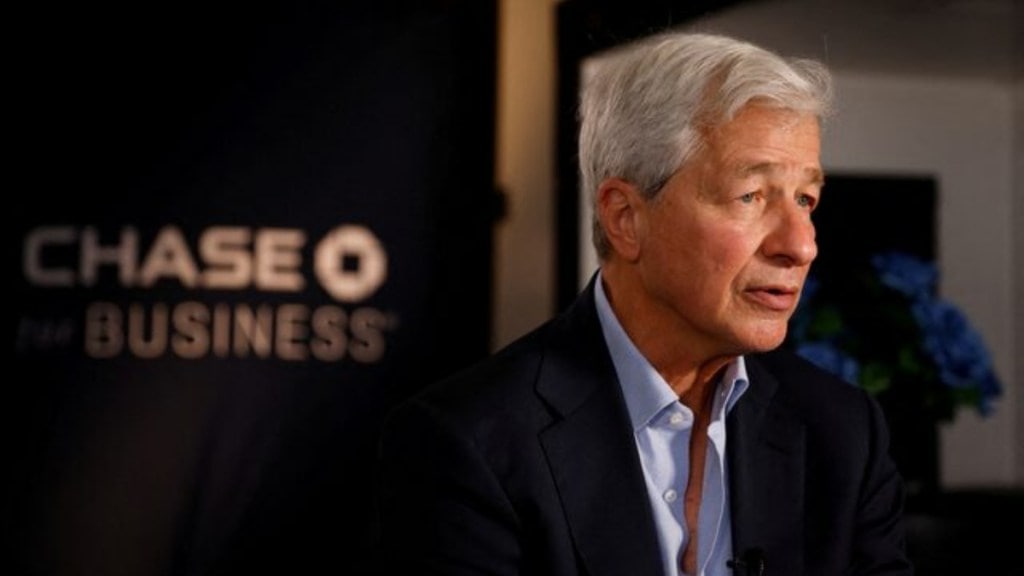JPMorgan Chase & Co. CEO Jamie Dimon has issued a stark warning against growing complacency amid a complex mix of risks, from inflation and credit conditions to geopolitical instability. Speaking at the firm’s investor day on Monday, Dimon emphasised that concerns around elevated inflation and stagflation are more serious than widely believed. He also flagged that US asset prices remain high and credit spreads may be underestimating the risks of an economic downturn.
“Credit today is a bad risk,” Dimon said. “The people who haven’t been through a major downturn are missing the point about what can happen in credit.”
The market turbulence triggered by the Trump administration’s shifting tariff strategies had earlier raised fears of a recession and questions over the safety of US assets. However, markets bounced back as President Trump signaled progress on tariff talks. Even after Moody’s Ratings downgraded the US’s last top credit rating on Friday, the S&P 500 reversed its initial losses on Monday.
“People feel pretty good because you haven’t seen an effect of tariffs,” Dimon noted. “The market came down 10%, it’s back up 10%; I think that’s an extraordinary amount of complacency.”
Trade negotiations are still active with key global players, including Japan, South Korea, India, and the European Union. Trump recently finalized a trade framework with the UK and agreed to a temporary tariff reduction with China to allow more time for discussions. But Dimon cautioned that the current tariff levels are still “pretty extreme” and said the response from other countries remains uncertain, with a slow ramp-up expected in domestic manufacturing.
‘Geopolitical threats are very, very high’
He also warned that corporate earnings forecasts are likely to be downgraded. “I don’t think we can predict the outcome and I think the chance of inflation going up and stagflation is a little higher than other people think,” Dimon said, adding that geopolitical threats are “very, very, very” high.
Despite the challenging outlook, Dimon assured that JPMorgan is well-positioned to weather the storm.
The ongoing volatility is expected to impact the bank’s investment-banking division. Troy Rohrbaugh, co-CEO of JPMorgan’s commercial and investment bank, projected that investment banking fees would fall by a percentage in the mid-teens year-over-year — a steeper drop than analysts had anticipated.
Doug Petno, Rohrbaugh’s fellow co-head, explained that many clients have “tapped the brake” due to market uncertainty. Trump’s trade policies have slowed merger and acquisition activity, and some IPO plans have been shelved.
Still, JPMorgan sees a bright spot in its trading business. Markets revenue from equities and fixed-income trading is expected to rise in the mid-to-high single digits compared to last year, Rohrbaugh noted. The bank’s stock trading unit already saw a record-breaking first quarter, fueled by recent market swings — and according to Dimon, more turbulence likely lies ahead.
“There are too many things out there,” Dimon said Monday.
